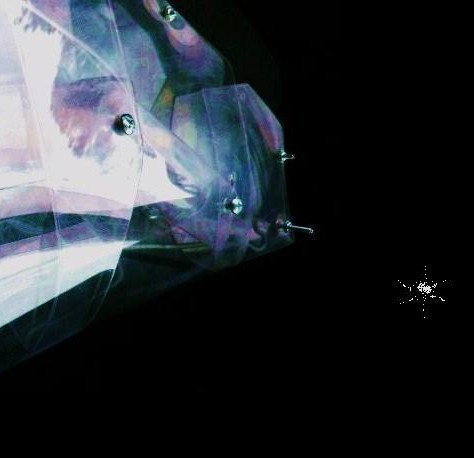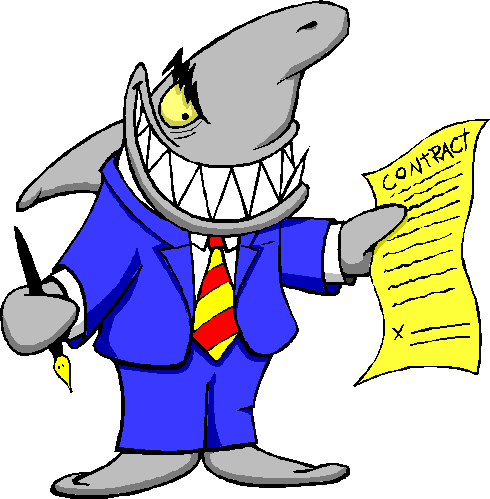Recommended Posts
Trae 1
"We can all thank Nixon for his war on drugs."
.............................
...and all the little fascists that perpetuate it !
It amazes me how western countries that have sacrificed so much against fascism don't allow such a small personal freedom as chuffing on a joint.
As a society we allow the prohibitionists to mess with peoples lives as a growth industry.
the fascists still rule eh?
Andy9o8 2
QuoteTo be brutally blunt about it, drug testing is just sharia disguised as concern for workplace safety; it has only the most tenuous relationship or correlation to actual workplace safety -- but a strong correlation to endangering a free society.
Ding! So well put.
5% of the employers who drug-test do so because, as a matter of safety, they legitimately need to.
The other 95% do it because they can.
Andy9o8 2
Quotethe fascists still rule eh?
By and large, yes.
QuoteThe other 95% do it because they can.
And there is a benefit for doing it, otherwise the employer wouldn't do it just to be fascist.
Our company workers compensation premium is reduced if we play with our employees pee. We also can't bid on state or federal work unless we play with the aforementioned pee.
Andy9o8 2
QuoteQuoteThe other 95% do it because they can.
And there is a benefit for doing it, otherwise the employer wouldn't do it just to be fascist.
Our company workers compensation premium is reduced if we play with our employees pee. We also can't bid on state or federal work unless we play with the aforementioned pee.
So they're being coerced into sharia-fascist culture by those who do it because they can. Same difference.
DARK 0
Top 10 Cannabis Studies the Government Wished it Had Never Funded
[B]10) MARIJUANA USE HAS NO EFFECT ON MORTALITY:[/B]
A massive study of California HMO members funded by the National Institute on Drug Abuse (NIDA) found marijuana use caused no significant increase in mortality. Tobacco use was associated with increased risk of death. Sidney, S et al. Marijuana Use and Mortality. American Journal of Public Health. Vol. 87 No. 4, April 1997. p. 585-590. Sept. 2002.
[B]9) HEAVY MARIJUANA USE AS A YOUNG ADULT WON’T RUIN YOUR LIFE:[/B]
Veterans Affairs scientists looked at whether heavy marijuana use as a young adult caused long-term problems later, studying identical twins in which one twin had been a heavy marijuana user for a year or longer but had stopped at least one month before the study, while the second twin had used marijuana no more than five times ever. Marijuana use had no significant impact on physical or mental health care utilization, health-related quality of life, or current socio-demographic characteristics. Eisen SE et al. Does Marijuana Use Have Residual Adverse Effects on Self-Reported Health Measures, Socio-Demographics or Quality of Life? A Monozygotic Co-Twin Control Study in Men. Addiction. Vol. 97 No. 9. p.1083-1086. Sept.
1997
[B] [IMG]http://breakthematrix.com/wp-includes/images/smilies/icon_cool.gif[/IMG] THE “GATEWAY EFFECT” MAY BE A MIRAGE:[/B]
Marijuana is often called a “gateway drug” by supporters of prohibition, who point to statistical “associations” indicating that persons who use marijuana are more likely to eventually try hard drugs than those who never use marijuana – implying that marijuana use somehow causes hard drug use. But a model developed by RAND Corp. researcher Andrew Morral demonstrates that these associations can be explained “without requiring a gateway effect.” More likely, this federally funded study suggests, some people simply have an underlying propensity to try drugs, and start with what’s most readily available. Morral AR, McCaffrey D and Paddock S. Reassessing the Marijuana Gateway Effect. Addiction. December 2002. p. 1493-1504.
[B]7) PROHIBITION DOESN’T WORK (PART I):[/B]
The White House had the National Research Council examine the data being gathered about drug use and the effects of U.S. drug policies. NRC concluded, “the nation possesses little information about the effectiveness of current drug policy, especially of drug law enforcement.” And what data exist show “little apparent relationship between severity of sanctions prescribed for drug use and prevalence or frequency of use.” In other words, there is no proof that prohibition – the cornerstone of U.S. drug policy for a century – reduces drug use. National Research Council. Informing America’s Policy on Illegal Drugs: What We Don’t Know Keeps Hurting Us. National Academy Press, 2001. p. 193.
[B]6) PROHIBITION DOESN’T WORK (PART II):
DOES PROHIBITION CAUSE THE “GATEWAY EFFECT”?):[/B] U.S. and Dutch researchers, supported in part by NIDA, compared marijuana users in San Francisco, where non-medical use remains illegal, to Amsterdam, where adults may possess and purchase small amounts of marijuana from regulated businesses. Looking at such parameters as frequency and quantity of use and age at onset of use, they found no differences except one: Lifetime use of hard drugs was significantly lower in Amsterdam, with its “tolerant” marijuana policies. For example, lifetime crack cocaine use was 4.5 times higher in San Francisco than Amsterdam. Reinarman, C, Cohen, PDA, and Kaal, HL. The Limited Relevance of Drug Policy: Cannabis in Amsterdam and San Francisco. American Journal of Public Health. Vol. 94, No. 5. May 2004. p. 836-842.
[B]5) OOPS, MARIJUANA MAY PREVENT CANCER (PART I):[/B]
Federal researchers implanted several types of cancer, including leukemia and lung cancers, in mice, then treated them with cannabinoids (unique, active components found in marijuana). THC and other cannabinoids shrank tumors and increased the mice’s lifespans. Munson, AE et al. Antineoplastic Activity of Cannabinoids. Journal of the National Cancer Institute. Sept. 1975. p. 597-602.
[B]4) OOPS, MARIJUANA MAY PREVENT CANCER, (PART II):[/B]
In a 1994 study the government tried to suppress, federal researchers gave mice and rats massive doses of THC, looking for cancers or other signs of toxicity. The rodents given THC lived longer and had fewer cancers, “in a dose-dependent manner” (i.e. the more THC they got, the fewer tumors). NTP Technical Report On The Toxicology And Carcinogenesis Studies Of 1-Trans- Delta-9-Tetrahydrocannabinol, CAS No. 1972-08-3, In F344/N Rats And B6C3F Mice, Gavage Studies. See also, “Medical Marijuana: Unpublished Federal Study Found THC-Treated Rats Lived Longer, Had Less Cancer,” AIDS Treatment News no. 263, Jan. 17, 1997.
[B]3) OOPS, MARIJUANA MAY PREVENT CANCER (PART III):[/B]
Researchers at the Kaiser-Permanente HMO, funded by NIDA, followed 65,000 patients for nearly a decade, comparing cancer rates among non-smokers, tobacco smokers, and marijuana smokers. Tobacco smokers had massively higher rates of lung cancer and other cancers. Marijuana smokers who didn’t also use tobacco had no increase in risk of tobacco-related cancers or of cancer risk overall. In fact their rates of lung and most other cancers were slightly lower than non-smokers, though the difference did not reach statistical significance. Sidney, S. et al. Marijuana Use and Cancer Incidence (California, United States). Cancer Causes and Control. Vol. 8. Sept. 1997, p. 722-728.
[B]2) OOPS, MARIJUANA MAY PREVENT CANCER (PART IV):[/B]
Donald Tashkin, a UCLA researcher whose work is funded by NIDA, did a case-control study comparing 1,200 patients with lung, head and neck cancers to a matched group with no cancer. Even the heaviest marijuana smokers had no increased risk of cancer, and had somewhat lower cancer risk than non-smokers (tobacco smokers had a 20-fold increased lung cancer risk). Tashkin D. Marijuana Use and Lung Cancer: Results of a Case-Control Study. American Thoracic Society International Conference. May 23, 2006.
[B]1) MARIJUANA DOES HAVE MEDICAL VALUE:[/B]
In response to passage of California’s medical marijuana law, the White House had the Institute of Medicine (IOM) review the data on marijuana’s medical benefits and risks. The IOM concluded, “Nausea, appetite loss, pain and anxiety are all afflictions of wasting, and all can be mitigated by marijuana.” While noting potential risks of smoking, the report added, “we acknowledge that there is no clear alternative for people suffering from chronic conditions that might be relieved by smoking marijuana, such as pain or AIDS wasting.” The government’s refusal to acknowledge this finding caused co-author John A. Benson to tell the New York Times that the government “loves to ignore our report … they would rather it never happened.” Joy, JE, Watson, SJ, and Benson, JA. Marijuana and Medicine: Assessing the Science Base. National Academy Press. 1999. p. 159. See also, Harris, G. FDA Dismisses Medical Benefit From Marijuana. New York Times. Apr. 21, 2006
NovaTTT 2
In terms of recreational use I am a fence-sitter as I don't use and don't give any thought to who may or may not. I simply couldn't care if it's legal or not (as should be obvious in that I think only CA has restricted-decriminalization).
But in terms of industry, medicine and manufacturing, hemp is a resource as useful as any other; probably moreso than almost any other. IIRC the hemp that is most beneficial industrially contains low amounts of THC and is therefore relatively useless recreationally.
However, if the decriminalization of hemp for industrial uses means it must be decriminalized across the board, I say go for it. Regulate it (as ETOH), tax it (as everything else under the sun) and in the process of improving industry, medicine, manufacturing, etc., take a large portion of the tax burden off Average Joe.
The burden on insurers and employers would also be lessened, in terms of extended and continued employment of human assets.
But decrim, if and when it occurs, will open another can of worms of issues and problems that we're not considering or have yet to even originate. Nothing's free and it don't come easy.
Furtherance of my .02
QuoteThe criminalization of marijuana (hemp) has caused a lot of issues and problems for America. IMO the war on drugs is a good thing, but the inclusion of marijuana in that war has clearly been a point of hot contention.
In terms of recreational use I am a fence-sitter as I don't use and don't give any thought to who may or may not. I simply couldn't care if it's legal or not (as should be obvious in that I think only CA has restricted-decriminalization).
But in terms of industry, medicine and manufacturing, hemp is a resource as useful as any other; probably moreso than almost any other.
Bingo.
When alcohol was prohibited, "they" did not make corn, potatoes, sugar cane, barley or hops illegal, did they?
Only with hemp, coca and opium are the plants themselves -- the natural resources themselves -- banned, and thus also all of the non-drug products that are of great value to humanity but not to the petrochemical and pharmaceutical companies whose products must compete with them.
Because underneath the sharia-compliant nature of employee drug testing is the crony capitalism (an oxymoron if there ever was one) upon which even the sharia is based: Go back in history and you'll discover that the senators from DuPont -- I mean, Delaware -- and William Randolph Hearst were instrumental in the passage of hemp suppression laws precisely because the invention of the hemp decorticator (think cotton gin and corn combine level of processing efficiency increase) made hemp a major competitor for DuPont's petrochemical-based patented products nylon, rayon and orlon, and for Hearst's vast forests-for-paper holdings. In fact, it was Hearst who is popularly credited with creating the word "marijuana" for hemp in order to play the race card in seeking its suppression. Harry J. Anslinger, for example, is famous for saying that smoking marijuana "makes darkies think they're as good as white men."
So when you support sharia in the workplace, you are, in fact, supporting a policy and attitude based on racism and corrupt government-corporate collusion that has no basis in objective reality and which is, in fact, a direct assault on freedom, free markets and products that bring great benefit to humanity at far less social, financial and environmental cost than the manufactured substitutes pedaled by corporations colluding with government to suppress choice.
"The beginning of wisdom is to first call things by their right names."
strop45 0
I've worked in the electricity distribution sector for over 30 years and in the time I've worked with a wide range of people. There have been (and continue to be) people who everyone knows have drug and alcohol problems and who work impaired and therefore place everyone's safety at risk.
In practice it can be very difficult to prove they are impaired (i'm just tired, its low blood sugar etc etc...) and having the ability to undertake "random" blood tests (which occur when it looks like they are impaired) is one tool in forcing them to front up to the problems and either get help or try an occupation where others don't depend on you for their safety.
The whole drugs are no worse than alcohol, being tired is the same as drunk/off your head etc doesn't cut much ice with me, neither does the turn a blind eye because that will put punters off.
If you have a problem, deal with it or go elsewhere, if you are drinking/using and leaving enough time between this and work to really sober up, then great, carry on...
Blue Skies
QuotePersonally I'm not a great fan of random testing except......
I've worked in the electricity distribution sector for over 30 years and in the time I've worked with a wide range of people. There have been (and continue to be) people who everyone knows have drug and alcohol problems and who work impaired and therefore place everyone's safety at risk.
In practice it can be very difficult to prove they are impaired (i'm just tired, its low blood sugar etc etc...) and having the ability to undertake "random" blood tests (which occur when it looks like they are impaired) is one tool in forcing them to front up to the problems and either get help or try an occupation where others don't depend on you for their safety.
The whole drugs are no worse than alcohol, being tired is the same as drunk/off your head etc doesn't cut much ice with me, neither does the turn a blind eye because that will put punters off.
If you have a problem, deal with it or go elsewhere, if you are drinking/using and leaving enough time between this and work to really sober up, then great, carry on...
Blue Skies
See, this is where performance testing is far superior because, guess what? It doesn't matter what your excuse is (too tired, low blood sugar, hung over, mother died, etc) -- if you can't PERFORM to the required standard, then you go home.
One continuing theme among posters who support sharia-compliant business practices is that somehow opposition to those practices = opposition to appropriate workplace safety standards, which is not the case.
Pretty much everyone wants safe workplaces - and safe plane/train/bus rides, etc. That is not the issue, no matter how often it's repeated.
The issue is how do you accomplish that in a manner that is actually effective, and at a cost that does not include the destruction of personal liberty.
"The beginning of wisdom is to first call things by their right names."
Andy9o8 2
QuoteI've worked in the electricity distribution sector for over 30 years and in the time I've worked with a wide range of people. There have been (and continue to be) people who everyone knows have drug and alcohol problems and who work impaired and therefore place everyone's safety at risk.
Then that's part of the 5% that's justified, not the 95% that's bullshit. Ya know?
QuoteJust an American that is sick of rights being abused...
Rights? As applicable to the topic?
All you guys saying
At work = No
Own time = Yes.
Hmmmm....my work day starts at 8:00 am.
I can drink/smoke gallons or pounds up to 7:59 and be good to go because I didn't do it on company time.
Got it now, thanks.
I think we're all Bozos on this bus.
Falcon5232, SCS8170, SCSA353, POPS9398, DS239
QuoteQuoteJust an American that is sick of rights being abused...
Rights? As applicable to the topic?
All you guys saying
At work = No
Own time = Yes.
Hmmmm....my work day starts at 8:00 am.
I can drink/smoke gallons or pounds up to 7:59 and be good to go because I didn't do it on company time.
Got it now, thanks.
Nobody ever said anything like that.
Nobody ever said that you could be impaired at your job.
All that was said was that no matter what you do on your own time, as long as you are back to required performance when you check in at work, you should not be hassled for what you did on your own time.
Anyway, here's a related issue.
Somebody mentioned the investment an employer has in his employees, and that the employer should have the right to protect his investment.
Does that give the employer the right to tell you not to skydive?
QuoteQuoteQuoteJust an American that is sick of rights being abused...
Rights? As applicable to the topic?
All you guys saying
At work = No
Own time = Yes.
Hmmmm....my work day starts at 8:00 am.
I can drink/smoke gallons or pounds up to 7:59 and be good to go because I didn't do it on company time.
Got it now, thanks.
Nobody ever said anything like that.
Nobody ever said that you could be impaired at your job.
All that was said was that no matter what you do on your own time, as long as you are back to required performance when you check in at work, you should not be hassled for what you did on your own time.
Anyway, here's a related issue.
Somebody mentioned the investment an employer has in his employees, and that the employer should have the right to protect his investment.
Does that give the employer the right to tell you not to skydive?
following the same logic, absolutely!
-Hunter S. Thompson
"No. Try not. Do... or do not. There is no try."
-Yoda
Andy9o8 2
QuoteQuoteAnyway, here's a related issue.
Somebody mentioned the investment an employer has in his employees, and that the employer should have the right to protect his investment.
Does that give the employer the right to tell you not to skydive?
following the same logic, absolutely!
Agreed.
QuoteQuoteQuoteAnyway, here's a related issue.
Somebody mentioned the investment an employer has in his employees, and that the employer should have the right to protect his investment.
Does that give the employer the right to tell you not to skydive?
following the same logic, absolutely!
Agreed.
Are you two just trying to be a pita? That's really helping the discussion. Thanks a bunch.
Agreed that the employer actually has the right?
Or agreed that following the logic, the employer has the right?
Too confusing for you? How about this -
Does an employer have the right to tell you to stop skydiving or you lose your job?
QuoteQuoteQuoteQuoteAnyway, here's a related issue.
Somebody mentioned the investment an employer has in his employees, and that the employer should have the right to protect his investment.
Does that give the employer the right to tell you not to skydive?
following the same logic, absolutely!
Agreed.
Are you two just trying to be a pita? That's really helping the discussion. Thanks a bunch.
Agreed that the employer actually has the right?
Or agreed that following the logic, the employer has the right?
Too confusing for you? How about this -
Does an employer have the right to tell you to stop skydiving or you lose your job?
if you are an "investment" for your employer as such, and are targeted with random drug tests, the same employer may have the rights to tell you not to skydive. or ride a motorcycle. kinda reminds me of when slavery was still the shits, i mean, you've had to bring them niggers in from africa to pick your cotton, right!? couldnt let them run around free so had to put them in chains, right!?
this is the modern day version of such practice.
what you do in your past-time, even if it's recreational drug-use, it's none of your boss's buisness, as long as you turn up sober the next day.
-Hunter S. Thompson
"No. Try not. Do... or do not. There is no try."
-Yoda
Andy9o8 2
No.
>Agreed that the employer actually has the right?
In most US states, absent an employment contract (and sometimes even with one): Yes.
>Or agreed that following the logic, the employer has the right?
That, too.
>Too confusing for you?
I hope not.
>Does an employer have the right to tell you to stop skydiving or you lose your job?
Same answer as above: In most US states, absent an employment contract (and sometimes even with one): Yes.










And if nobody is talking about it, we can expect it to stay that way.
After all, ETOH was 100% criminalized there for a while too.
By the way, your "except in CA" is not quite correct.
Wikipedia list 12 states where, as least as far as the state is concerned, marijuana has been decriminalized to one extent or another.
Share this post
Link to post
Share on other sites